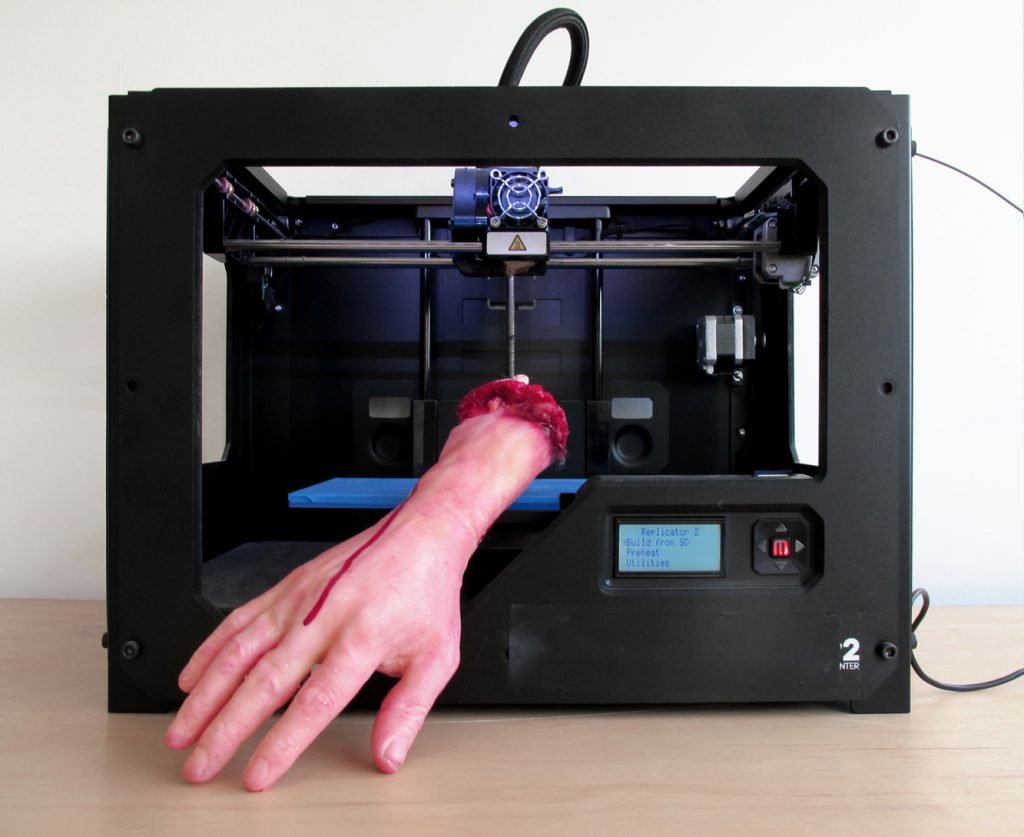Holograms in the museum
Date: Friday 1 March 2019
Time: 6.30-8pm
Venue: Keynes Library, School of Arts Birkbeck, 43 Gordon Square, London, WC1H 0PD
This event explores the increasing role of holographic technology in the arts and cultural sector.
Today the term “hologram” is often used to describe a wide variety of three-dimensional and virtual imagery, generated by technologies ranging from Pepper’s ghosts to augmented reality. Museums and galleries are increasingly using these technologies as a means to reanimate the past, create interactive visitor experiences and offer access to absent or fragile artefacts.
Beyond the initial excitement of these dazzling holographic spectacles, this event creates an opportunity to consider the aesthetic, ethical and technical questions raised by these practices. Why are holograms so popular as a means to reanimate history and culture? How do they alter existing practices of memory and memorialisation? What are our responsibilities when using holograms to reanimate people? How do holograms affect our temporal relationships with people, objects and artefacts? Why has holography become a metaphor for so many types of virtual experience?
This interdisciplinary discussion brings together animators, designers and media and cultural studies scholars to consider the changing significance of holograms in artistic and cultural practice.
The event will feature brief presentations by Chris Walker, and Nick Lambert, Jazz Rasool and Mike Smith, followed by a panel discussion chaired by Dr Silke Arnold-de Simine, Reader in Memory, Media and Cultural Studies at Birkbeck College.
If you have any additional access requirements please get in touch elizabeth.johnson@bbk.ac.uk
The discussion is free to attend but booking is encouraged.
Please book your ticket here. All welcome!
This event coincides with the exhibition Leonardo da Vinci and Perpetual Motion: Visualising Impossible Machines, which is taking place in the Peltz Gallery from 6 February to 12 March 2019.
Prior to the discussion, there will also be an opportunity to experience the Holo Lens animation of da Vinci’s designs in the Peltz Gallery from 5pm.
Speakers’ bios
Dr Nick Lambert is Director of Research at Ravensbourne University London. He studies art and technology, and the position of the digital medium in contemporary art and visual culture. Through this, he engages with questions about the boundary between “fine” and “applied” arts, design and interfaces. Lambert has written on the history of computer art and cutates exhibitions with artists and theorists in this field. He has also developed interests in the evolution of immersive visual technologies, especially full dome; and exhibited his immersive artworks in New York, London and elsewhere.
Jazz Rasool has a background in Science, Computing and Teaching. He is currently a Researcher at Ravensbourne University London (RUL) specialising in Technology Enhanced Education. His most recent work contributed to a €3m EU funded project creating Holographic (Hololens) workplace training for Air Ambulance crew in the Arctic as well as Astronaut trainers in Italy working with International Space Station and Mars missions. In 2018 he won a €30,000 first prize from Farfetch, the world’s 4th largest online fashion retailer, for Disruptive Innovation in Fashion, competing against 50 other companies globally, with his winning idea presenting technology for Holographic projection of fashion on people. Preparing for the 500th anniversary of Leonardo Da Vinci’s Death in 2019 and collaborating with colleagues at RUL, Jazz was the first to create and see a holographic animated rendition of Da Vinci’s designs for Perpetual Motion machines, with the work on show at the Peltz Gallery, London and at the home of Da Vinci’s designs in the Museo Galileo in Florence, Italy.
Mike Smith is a creative content provider, animator, educator and visual storyteller, specializing in heritage, theatre and public installations. His expertise, as an animator and visual effects artist, allow him to provide these sectors with the standard of visualization and storytelling expected in the film and entertainment industries.
Chris Walker is the Managing Director of Bright White; a creative design consultancy based in York, England. Bright White formed in 2004. Their mission is to engage the next generation with the riches of the past and present, to help them live and learn. Bright White believe in learning by doing; giving the audience real agency to explore a subject, sparking their interest, creating memorable moments and, in the process, learning without labour.
.
.
Category: Archived Events
.
Tags: Birkbeck College, Holograms in the museum, keynes library, Peltz Gallery, School of Arts Birkbeck, technology



